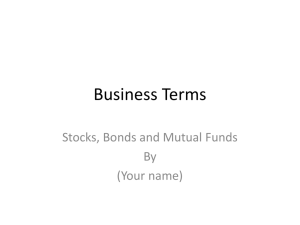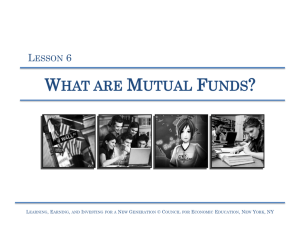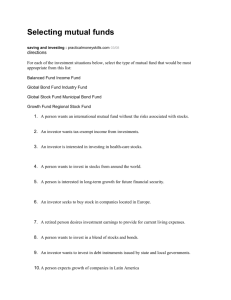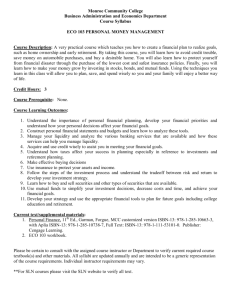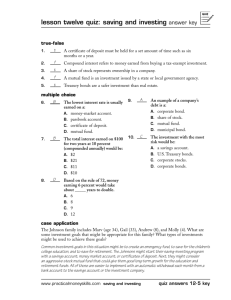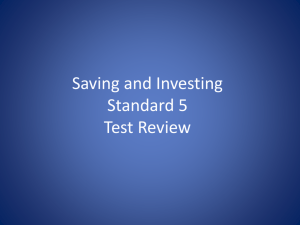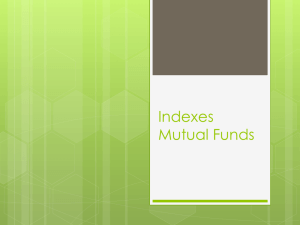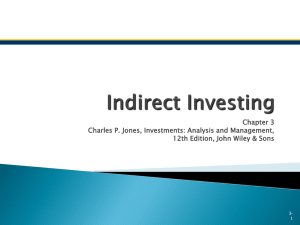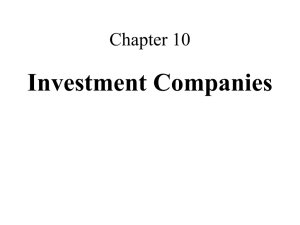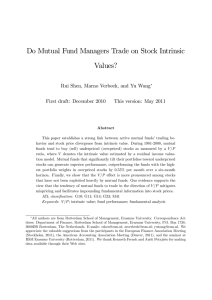Stock Market Investing – Mutual Fund Unit Study Guide What are
advertisement
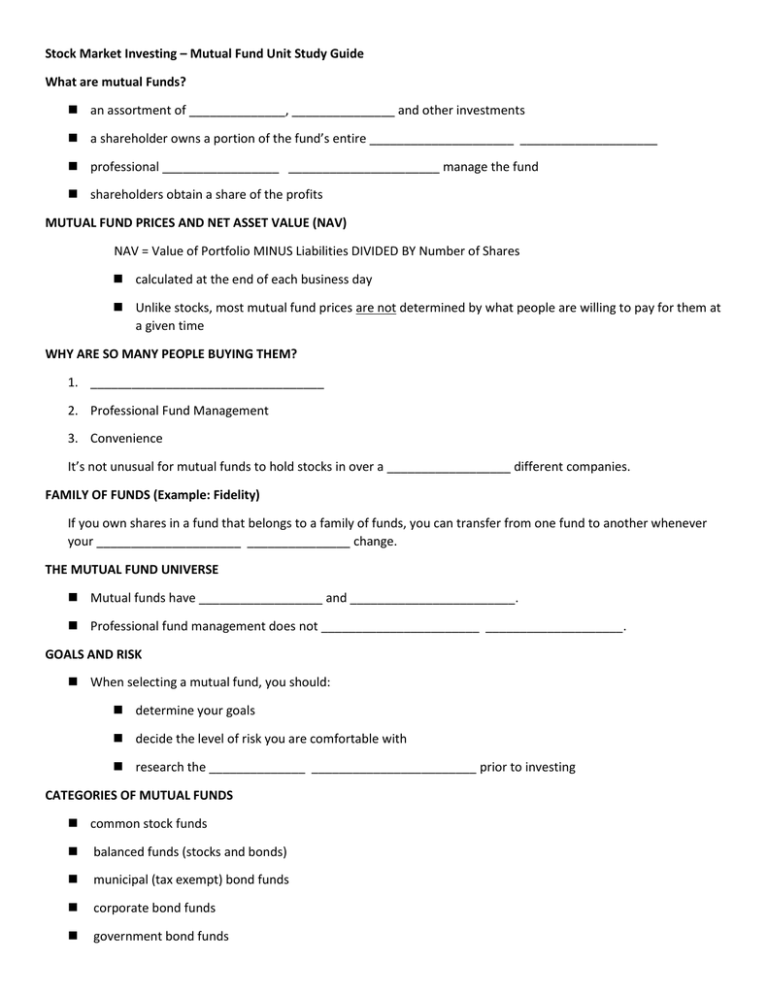
Stock Market Investing – Mutual Fund Unit Study Guide What are mutual Funds? an assortment of ______________, _______________ and other investments a shareholder owns a portion of the fund’s entire _____________________ ____________________ professional _________________ ______________________ manage the fund shareholders obtain a share of the profits MUTUAL FUND PRICES AND NET ASSET VALUE (NAV) NAV = Value of Portfolio MINUS Liabilities DIVIDED BY Number of Shares calculated at the end of each business day Unlike stocks, most mutual fund prices are not determined by what people are willing to pay for them at a given time WHY ARE SO MANY PEOPLE BUYING THEM? 1. __________________________________ 2. Professional Fund Management 3. Convenience It’s not unusual for mutual funds to hold stocks in over a __________________ different companies. FAMILY OF FUNDS (Example: Fidelity) If you own shares in a fund that belongs to a family of funds, you can transfer from one fund to another whenever your _____________________ _______________ change. THE MUTUAL FUND UNIVERSE Mutual funds have __________________ and ________________________. Professional fund management does not _______________________ ____________________. GOALS AND RISK When selecting a mutual fund, you should: determine your goals decide the level of risk you are comfortable with research the ______________ ________________________ prior to investing CATEGORIES OF MUTUAL FUNDS common stock funds balanced funds (stocks and bonds) municipal (tax exempt) bond funds corporate bond funds government bond funds money market funds IMPORTANCE OF COMMON STOCK FUNDS Stock Market funds provide the greatest ______________ _____________________ and carry the greatest _____________ ______________ growth funds(small companies with high growth potential) long-term growth funds(sometimes called steady-growth companies) growth and income funds(mixed portfolio of stocks and bonds) _________________ funds (stocks from one industry/sector) international funds (investments outside the U.S.) INDEX FUNDS buys a little bit of everything invests in a representative sample of the _____________ ____________ ________________ In recent years, 90% of professionally managed mutual funds have not outperformed the S&P 500 Fund Expenses load funds charge an up-front ___________ __________________________ about 3.5% on average back-end loads a charge is deducted when fund shares ____________ __________________ no-load funds do not charge a sales fee ADVICE FROM A SALES ADVISOR If you learn to make your own mutual fund decisions and buy primarily ________-____________ funds, you will have more money to invest. EXPENSE RATIO expressed as a ____________________ ______ _______________ deducted each fiscal year for fund expenses management fees 12b-1 fees administrative fees operating costs all other asset based costs Expense Ratios range from 0.3% to 5%. You should probably avoid funds with expense ratios higher than _____________%. Operating expenses have a dramatic impact on the ___________-____________ ______________________________ of a fund. IN-DEPTH INFORMATION In-depth information sources are a crucial resource to consult prior to investing in mutual funds. MORNINGSTAR evaluates a fund’s performance over a _________ year period one-page, compact presentation available on subscription basis www.morningstar.com STANDARD & POOR’S/ LIPPER MUTUAL FUND PROFILES contains the following information: industry percentages __________ holdings performance data expenses and fees available by subscription www.lipperweb.com DETERMINE WHAT KINDS OF MUTUAL FUNDS YOU WANT TO CONSIDER Investment choices should be based on your ____________ and ________________________. bear market a period of ____________________ prices BetterInvesting recommends that long term investors focus on equity funds that invest in growth companies. CHOOSE A GROWTH FUND Limiting your choice of growth funds to those that have strong performance comparable to the S&P 500 index in the 3-year, 5-year, and longer periods will give you a good starting point. IMPORTANT FACTS know who will be investing your money and know their _________________ _______________ ____________________ Rate how often the manager buys and sells stocks in the portfolio capital gains are _________________ There has not been a proven relationship between _____________ ________________ and high returns. Past performance is never a __________________________ of future __________________. REVIEW YOUR PORTFOLIO You should ___________ __________________ on changes affecting your portfolio. Be skeptical of what you hear and read in the financial media. In investing, knowledge is __________________________.
